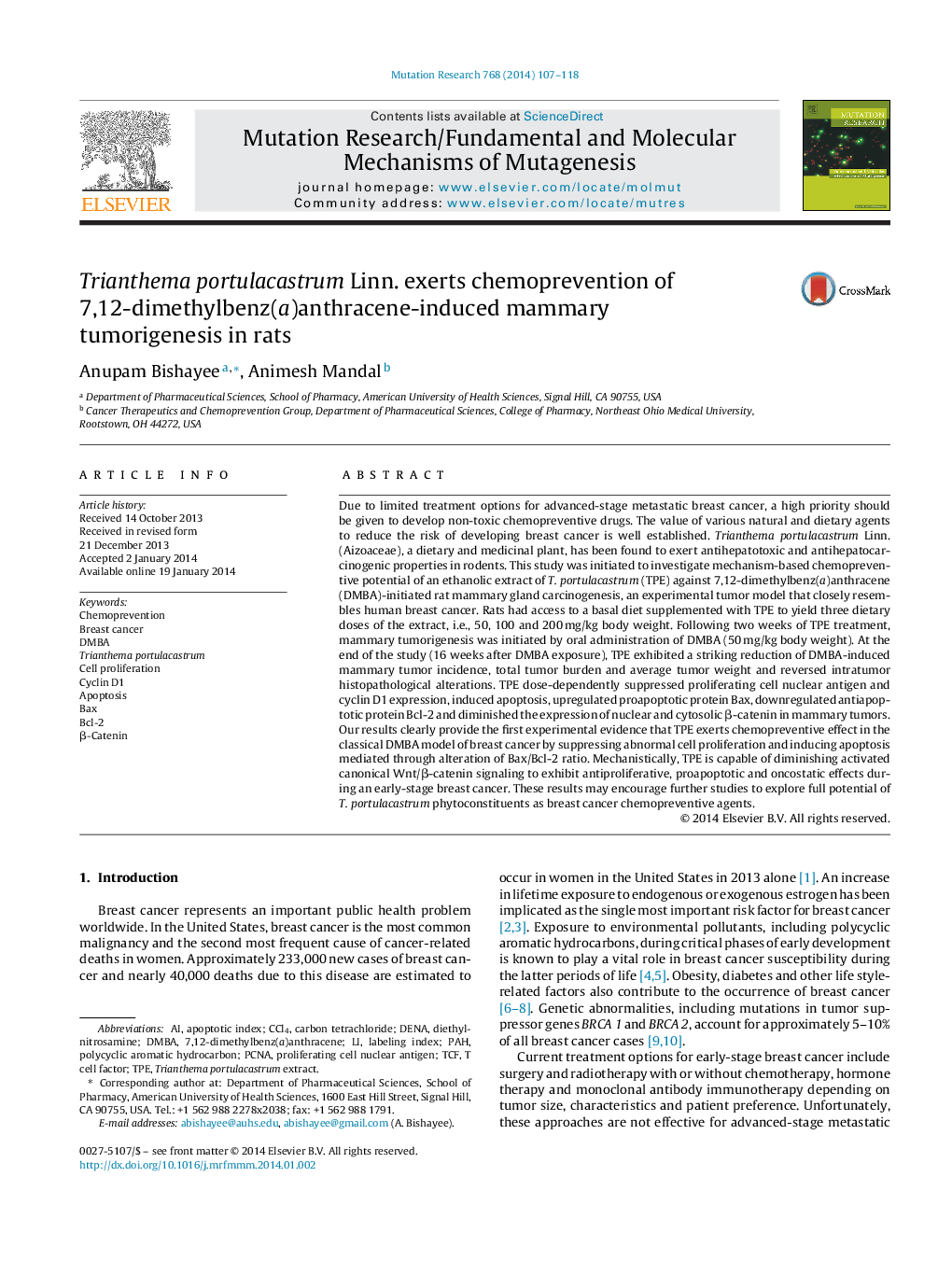| Article ID | Journal | Published Year | Pages | File Type |
|---|---|---|---|---|
| 2146300 | Mutation Research/Fundamental and Molecular Mechanisms of Mutagenesis | 2014 | 12 Pages |
•Dietary administration of an ethanolic extract of aerial parts of T. portulacastrum (TPE) exhibits a striking chemopreventive effect in an experimentally induced classical animal model of breast cancer.•The mammary tumor-inhibitory effect of TPE could be achieved, at least in part, though intervention of key hallmark capabilities of tumor cells, such as abnormal cell proliferation and evasion of apoptosis.•TPE is capable of diminishing activated canonical Wnt/β-catenin signaling to exhibit antiproliferative, proapoptotic and oncostatic effects during this early-stage mammary carcinoma.•These results coupled with a safety profile of T. portulacastrum may encourage further studies to understand the full potential of this dietary plant for chemoprevention of breast cancer.
Due to limited treatment options for advanced-stage metastatic breast cancer, a high priority should be given to develop non-toxic chemopreventive drugs. The value of various natural and dietary agents to reduce the risk of developing breast cancer is well established. Trianthema portulacastrum Linn. (Aizoaceae), a dietary and medicinal plant, has been found to exert antihepatotoxic and antihepatocarcinogenic properties in rodents. This study was initiated to investigate mechanism-based chemopreventive potential of an ethanolic extract of T. portulacastrum (TPE) against 7,12-dimethylbenz(a)anthracene (DMBA)-initiated rat mammary gland carcinogenesis, an experimental tumor model that closely resembles human breast cancer. Rats had access to a basal diet supplemented with TPE to yield three dietary doses of the extract, i.e., 50, 100 and 200 mg/kg body weight. Following two weeks of TPE treatment, mammary tumorigenesis was initiated by oral administration of DMBA (50 mg/kg body weight). At the end of the study (16 weeks after DMBA exposure), TPE exhibited a striking reduction of DMBA-induced mammary tumor incidence, total tumor burden and average tumor weight and reversed intratumor histopathological alterations. TPE dose-dependently suppressed proliferating cell nuclear antigen and cyclin D1 expression, induced apoptosis, upregulated proapoptotic protein Bax, downregulated antiapoptotic protein Bcl-2 and diminished the expression of nuclear and cytosolic β-catenin in mammary tumors. Our results clearly provide the first experimental evidence that TPE exerts chemopreventive effect in the classical DMBA model of breast cancer by suppressing abnormal cell proliferation and inducing apoptosis mediated through alteration of Bax/Bcl-2 ratio. Mechanistically, TPE is capable of diminishing activated canonical Wnt/β-catenin signaling to exhibit antiproliferative, proapoptotic and oncostatic effects during an early-stage breast cancer. These results may encourage further studies to explore full potential of T. portulacastrum phytoconstituents as breast cancer chemopreventive agents.
